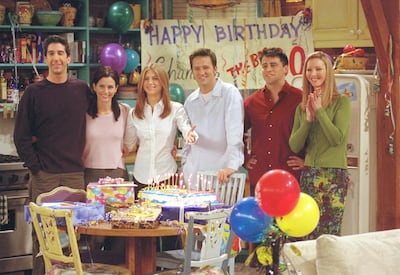Darth Vader is Luke's dad. There, I did it. I spoiled The Empire Strikes Back for you. Now, tradition dictates that you must pillory me online, preferably USING CAPS LOCK.
We're in the age of spoiler culture, and specifically spoilerphobia, such that with the release of Avengers: Endgame this week, the #Don'tSpoilTheEndgame hashtag was trending on social media almost to the same degree as the film itself.
When did this happen? For most of humankind’s cultural history the concept of a spoiler would have been completely alien. Look at the Greek tragedy, in which a chorus would often take to the stage at the very start of the play to tell the audience in gory detail the events that were about to unfold.
George Lucas ruined everything
You don't even need to go that far back. In 1976, a full year before Star Wars was released in cinemas, the New York Times published an interview with George Lucas. At that point he was still known as "American Graffiti director George Lucas", and in the article he described in intricate detail the plot of his forthcoming movie. To quote from the story: "The emperor's secret weapon is destroyed, the princess is rescued, and the forces of evil routed in a final spaceship dogfight conducted along World War II lines. The sinister Black Knight (Dave Prowse) is allowed to slink away, however, to scheme again another day, thereby keeping the door open for possible sequel."
Lucas didn’t complain or issue a Russo Bros style letter, and no one spraypainted “SPOILER ALERT!!!” across the front of the publication.
Even as recently as the last decade, Friends would air every week, with far-from-cryptic episode titles such as The One Where Estelle Dies and The One Where Rachel's Sister Babysits.
So what changed? Quite simply, social media. The last episode of Friends aired in 2004. Facebook launched in 2004, and Twitter two years later in 2006.
The rise of social media
Message boards and fan sites where geeks could gather to share movie knowledge and rumours existed before these sites, but you had to actively seek them out. You had to want the knowledge you would receive. When social media became ubiquitous over the following few years, there was no place left to hide anymore. (Unless you did the unthinkable and turned your phone off, of course.)
It wasn't just audiences who were affected by the change in the digital landscape. When Star Wars opened in theatres in 1977, it was on just 32 screens in the US. You started small because you had to. Film prints are expensive, so you would order more as needed, if a film hit big.
Then film would then spread slowly across the world. If you were living in a rural community with no cinema, or just one that might take weeks to get the latest release, you’d expect to hear about the latest movie when your friend came back from the city.
Now, with a click of a button, your digital print can be at every cinema in the world in a matter of hours for the cost of a broadband subscription (albeit a fast one if you're sending 4k, Dolby 7.1, cinema-quality prints). Avengers: Infinity War, for example, opened on 4,474 screens in the US alone.
It's the same for TV. When I was at school, if I missed an episode of Blake's 7 or Logan's Run (yes, my dad was a sci-fi nerd), I'd missed it. And I'd expect, and want, to hear all about it in the playground the following day so I was prepared for next week's installment, because it wasn't coming back any time soon.
And then came Netflix. Everything is immediate, and constantly available – and to those want everything right now, everyone else should too. So if you haven't watched Game of Thrones yet, you deserve to have it spoiled for being so behind the curve. But what if I didn't want to get up and watch GoT at 5am, and had planned on watching it after work? Or on the weekend?
There are arguments for both sides of the spoiler-phobia debate. If you like something, or hate it, why shouldn’t you talk about it? Equally, if you want to watch something at your own pace without knowing the plot in advance, shouldn’t you have that right?
Ironically, the one group of people that this issue inadvertently assists the most is the big studios. They love the online buzz and the critics when the opinions are positive, but when a movie is a bit less of a certainty, they’d undoubtedly prefer nobody talked about their film at all, relying on the draw of a big name and a hyped marketing campaign to draw the crowds in before word gets out that it’s terrible.
If a studio said “You can’t say our film is bad,” they would sound ridiculous. If they say “don’t spoil the surprise,” that’s far more palatable, and perfectly reasonable. It’s just a shame if it turns out the surprise is that the film is actually bad.



